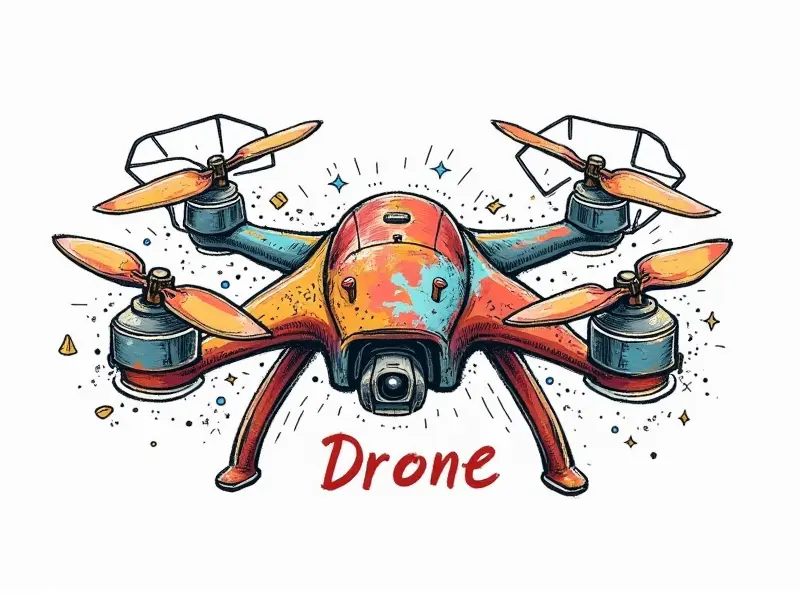Electric vs gas RC airplanes?

Electric vs Gas: Which Powers Better RC Planes?
The world of remote control (RC) airplanes is constantly evolving, with advancements in technology leading to new and improved options for enthusiasts. Two popular choices are electric-powered and gas-powered RC planes. Each has its own set of advantages and disadvantages when it comes to performance, cost, environmental impact, and maintenance.
Performance Comparison: Electric vs Gas RC Planes
When comparing the performance of electric versus gas-powered RC planes, several factors come into play:
- Speed: Gas engines typically offer higher top speeds due to their continuous power output.
- Acceleration: Electric motors provide instant torque and quick acceleration, making them ideal for aerobatic maneuvers.
- Endurance: Electric planes have shorter flight times but can be recharged quickly. Gas planes offer longer endurance with refueling required.
Cost Analysis: Electric vs Gas RC Aircraft
The initial cost of entry for both types of RC planes varies significantly:
- Electric Planes: Generally cheaper to purchase, but batteries can be expensive and require frequent replacement.
- Gas Planes: Higher upfront costs due to the engine and fuel system. However, gas is often less expensive than battery packs over time.
Environmental Impact: Electric vs Gas RC Planes
The environmental impact of electric versus gas-powered RC planes is a critical consideration for many hobbyists:
- Emissions: Electric planes produce zero emissions, making them more eco-friendly.
- Noise Pollution: Gas engines are louder and contribute to noise pollution. Electric motors operate quietly.
Beginner's Guide: Choosing Between Electric & Gas RC Planes
Newcomers to the hobby often struggle with choosing between electric and gas-powered planes. Here’s a quick guide:
- Electric for Beginners: Easier to operate, quieter, and less expensive.
- Gas for Experienced Flyers: More complex setup but offers higher performance and longer flight times.
The Great Debate: Electric or Gas RC Airplanes?
The debate between electric and gas-powered RC planes is ongoing, with passionate arguments on both sides. Ultimately, the choice depends on your specific needs:
- Performance Enthusiasts: May prefer the speed and endurance of gas engines.
- Eco-Conscious Hobbyists: Might lean towards electric planes for their environmental benefits.
Advantages of Electric RC Aircraft Over Gas
Electric-powered RC planes offer several advantages over their gas counterparts:
- Instant Torque: Provides quick acceleration and responsiveness.
- Maintenance-Free: No oil changes or spark plug replacements needed.
- Quiet Operation: Less disturbance to others during flight.
Should You Switch from Gas to Electric RCs?
If you're considering switching from gas to electric-powered RC planes, here are some factors to consider:
- Battery Technology: Advancements in battery technology have made electric planes more viable.
- Maintenance Costs: Electric planes require less maintenance and can save money over time.
Electric RC Planes: Benefits & Drawbacks Explained
Electric RC planes come with their own set of benefits and drawbacks:
- Benefits: Quiet, easy to maintain, instant power delivery.
- Drawbacks: Shorter flight times, higher initial battery costs.
Speed & Efficiency: Electric vs Gas RC Flyers
The speed and efficiency of electric versus gas-powered RC planes are key factors in their performance:
- Electric Planes: Offer high efficiency due to instant torque but may lack top-end speed.
- Gas Planes: Provide sustained power for longer flights and higher speeds, albeit with less immediate acceleration.
Maintenance Tips: Electric vs Gas RC Planes
Maintaining your RC plane is crucial to its longevity and performance. Here are some tips:
- Electric Planes: Keep batteries charged, check motor connections regularly.
- Gas Planes: Change oil and spark plugs as recommended by the manufacturer.
Conclusion
The choice between electric and gas-powered RC planes ultimately depends on your personal preferences and needs. Electric planes offer instant torque, quiet operation, and lower maintenance costs but have shorter flight times. Gas planes provide higher speeds and longer endurance but require more upkeep. Whether you're a beginner or an experienced flyer, understanding the pros and cons of each type can help you make an informed decision.

